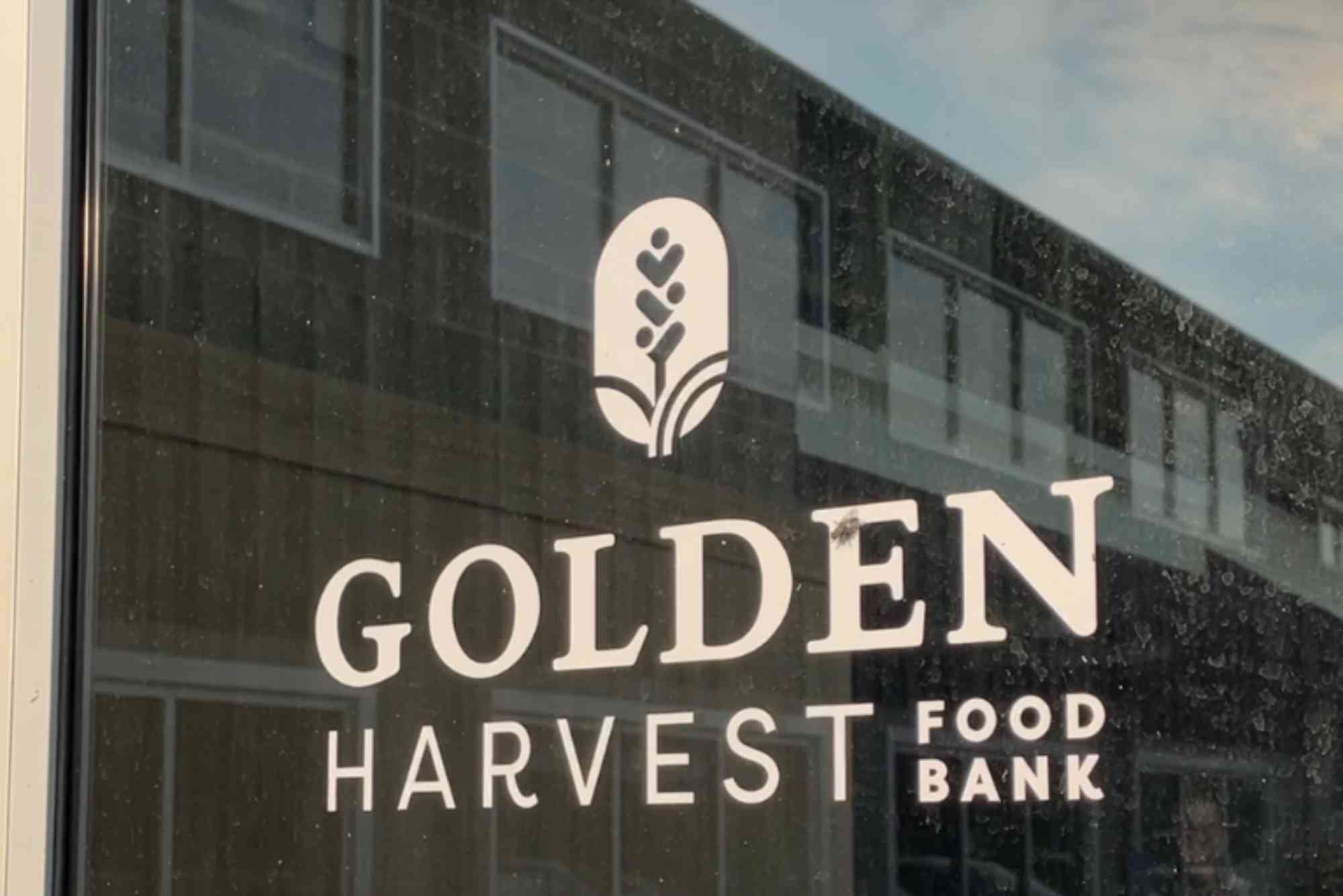Golden Harvest Food Bank – Fighting Hunger Across Communities
In a world where millions go to bed hungry, community-based solutions like the Golden Harvest Food Bank offer a lifeline to those most in need. This essential organization has been serving Georgia and South Carolina for decades, ensuring that nutritious meals reach individuals and families facing food insecurity. With a strong focus on compassion, efficiency, and community partnership, Golden Harvest Food Bank has become a cornerstone of hope and sustenance for countless lives.
The goal of Golden Harvest Food Bank is not just to feed people, but to fight hunger at its root causes by providing access, dignity, and support. Through various hunger relief programs and outreach efforts, this food bank has cemented its reputation as a reliable resource for struggling communities. In this article, we’ll explore the origins, operations, and lasting impact of the Golden Harvest Food Bank, as well as how you can be part of this powerful mission.
Understanding the Mission of Golden Harvest Food Bank
The core mission of Golden Harvest Food Bank is simple yet powerful — to feed lives together through healthy food and dedicated service. Founded in 1982, the food bank began with a humble but determined mission to bring surplus food to those who needed it most. Since then, it has grown into a well-organized system that distributes millions of meals annually across a 25-county service area in Georgia and South Carolina.
Golden Harvest Food Bank is a proud member of Feeding America, the largest hunger-relief network in the United States. This affiliation gives the food bank access to a national supply chain of donations, grants, and resources while maintaining a strong local presence. The organization collaborates with hundreds of partner agencies — from churches and shelters to soup kitchens and schools — to make sure food gets to the right hands at the right time.
Hunger in the Heart of the South: Why Golden Harvest Is Needed
Food insecurity affects individuals across all walks of life, from children and working parents to seniors and veterans. According to Feeding America, over 38 million people in the U.S. struggle with hunger — many of whom live in the Southern states. Georgia and South Carolina face persistent economic challenges, and food deserts are common, especially in rural areas.
Golden Harvest Food Bank targets these gaps by acting as a central hub for food distribution and hunger education. It doesn’t just hand out food; it builds systems that connect food surplus with urgent community needs. During emergencies like the COVID-19 pandemic or hurricane seasons, the food bank also mobilizes quickly to deliver critical supplies to impacted communities.
Key Programs Offered by Golden Harvest Food Bank
Golden Harvest Food Bank has developed several initiatives to address hunger from multiple angles. Each program is tailored to serve specific vulnerable groups while promoting long-term food security.
The Master’s Table Soup Kitchen
This flagship program is based in downtown Augusta, Georgia. The Master’s Table serves hot, nutritious meals 365 days a year to individuals in need. Guests receive not only a meal but also a welcoming environment where they’re treated with dignity and respect. Volunteers and staff ensure that everyone is greeted warmly and fed well, regardless of their background or circumstances.
Mobile Food Pantries
Golden Harvest operates Mobile Market programs to serve remote or underserved areas. These mobile pantries bring fresh produce, dairy, meat, and non-perishable items directly to communities with limited food access. The convenience and accessibility of these services make a tremendous difference, especially for seniors, people with disabilities, and families without transportation.
Senior and Children’s Programs
The food bank runs targeted support for seniors through senior grocery box programs, ensuring older adults receive balanced nutrition. For children, the Backpack Program offers weekend meals to students who rely on school lunches but may have little food at home during weekends or holidays. These programs play a critical role in reducing developmental and health risks associated with childhood hunger.
Faith-Based and Community Partnerships
Golden Harvest relies on a strong network of local churches, civic groups, and nonprofit partners. These partners help distribute food, organize drives, and conduct educational workshops. By building community capacity, the food bank ensures its mission continues to scale and evolve based on local needs.
How Golden Harvest Food Bank Sources and Distributes Food
Sourcing food is both a logistical challenge and a mission-critical task. Golden Harvest collects food through donations from individuals, grocery retailers, restaurants, farms, and manufacturers. The organization also purchases staple items in bulk to maintain consistent supplies.
Once collected, food is stored in strategically located warehouses in Augusta and Aiken. From there, items are sorted, packaged, and dispatched to partner agencies or distributed directly via mobile markets and soup kitchens. Staff and volunteers follow strict food safety protocols to ensure that all distributed food is high-quality and safe for consumption.
The food bank embraces data and technology to track needs, monitor inventory, and optimize delivery routes. This helps reduce waste, improve efficiency, and ensure timely distribution across counties with varying levels of need.
Volunteering and Donating: How You Can Help
Golden Harvest Food Bank relies heavily on volunteers and donations to keep its operations running. Each year, thousands of volunteers step up to sort food, pack meals, assist at events, and serve at the soup kitchen. Volunteers range from school groups and churches to retirees and professionals who want to give back.
Financial donations are equally critical. A small monetary contribution can go a long way — just $1 can help provide up to 3 meals. Donors can contribute monthly or make one-time gifts, and many employers offer matching gift programs that double the impact.
Businesses can also partner with the food bank through sponsorships, food drives, or employee volunteering initiatives. Supporting Golden Harvest Food Bank isn’t just charity — it’s a strategic investment in a healthier, more resilient community.
Impact Stories: Lives Changed by Golden Harvest Food Bank
The most compelling proof of Golden Harvest’s effectiveness lies in the stories of the people it serves. Parents who once struggled to feed their kids now have consistent food support. Veterans who experienced homelessness found hope through warm meals and community outreach. Seniors express relief and gratitude for grocery deliveries that help them stretch their limited incomes.
Each story is a testament to what happens when a community comes together to fight hunger. Behind every statistic is a real person, and Golden Harvest ensures their dignity is always preserved.
The Role of Advocacy and Education
Beyond food distribution, Golden Harvest Food Bank also engages in hunger education and public policy advocacy. Through workshops, school programs, and community seminars, the organization teaches people about nutrition, food budgeting, and the root causes of hunger.
The food bank also works with local and national lawmakers to influence policies that support food access and social safety nets. Hunger isn’t just a charity issue — it’s a systemic challenge that requires long-term, strategic solutions.
Golden Harvest Food Bank proves that with organization, compassion, and community support, fighting hunger is not just possible — it’s achievable. From soup kitchens to mobile markets, from kids’ backpacks to senior groceries, the organization touches lives in every corner of its service area.
Whether you donate, volunteer, or simply spread the word, your support can make a real impact. Every meal shared is a step toward a future where no one in Georgia or South Carolina goes to bed hungry.
FAQs
What areas does Golden Harvest Food Bank serve?
Golden Harvest Food Bank serves 25 counties across Georgia and South Carolina, including Augusta, Aiken, and surrounding rural areas.
How can I volunteer at Golden Harvest Food Bank?
You can sign up for volunteer shifts through the Golden Harvest Food Bank’s official website. Opportunities include sorting food, serving meals, and assisting at mobile markets.
Where does Golden Harvest get its food from?
The food bank sources food from donations by retailers, food manufacturers, farms, and individuals. It also purchases food to ensure consistent supplies.
Can I donate food directly?
Yes, Golden Harvest accepts non-perishable food donations. You can drop them off at their warehouses or during food drive events.
How does my donation help fight hunger?
Every dollar you donate helps the food bank distribute up to 3 meals. Your contribution supports operational costs, food purchasing, and delivery logistics.





